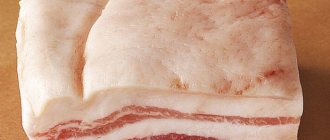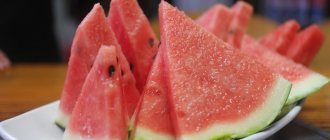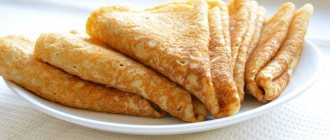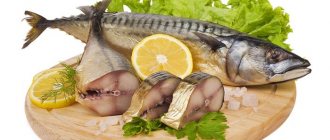The benefits of omelet
Since the traditional omelet contains chicken eggs, which are allergens, many women doubt the need to introduce this dish into their usual diet. In addition to eggs, the following ingredients are used in preparation: milk, butter, flour, salt and spices. Each housewife uses her own omelet recipe, which may contain additional ingredients.
- Eggs are generous in proteins, fats, various amino acids and vitamins necessary for the normal functioning of the body of every person, especially a nursing mother.
- Lutein, which is part of eggs, helps improve vision.
- With the help of niacin, the body produces a sufficient amount of hormones, both female and male.
- Protein contains a large amount of vitamin D, rivaling only fish oil in terms of performance.
- The yolk increases the level of hemoglobin in the blood, which is important for mothers whose breast milk is a “supplier” of iron to the baby’s body. The introduction of eggs into the diet of a nursing woman should be gradual - start with one egg per week, reaching a maximum of three eggs.
- Milk is a storehouse of calcium, as well as protein, the replenishment of which is extremely important during breastfeeding.
- Butter can be butter or sunflower, but regardless of its type, it is the most fat-containing ingredient in an omelet.
- The dish contains many microelements involved in the proper functioning of the whole body.
- Salt is rich in minerals and various trace elements and is acceptable in minimal quantities.
- It is worth holding off with spices and seasonings when breastfeeding. Herbs or their mixtures can negatively affect the baby’s health.
Beneficial features
The egg is the only product that is completely digested in the human body. With its help, a sufficient amount of amino acids is supplied. These components are necessary for the proper growth and development of the baby.
Eggs contain many micro- and macroelements. Regular moderate consumption guarantees replenishment of the balance of vitamins C, A, E, D, B. Protein additionally contains fish oil. Lutein is essential for improving vision. Niacin helps restore brain activity and normalizes the functioning of the reproductive system in women and men.
There are not only positive aspects to eggs. Protein is bad for the kidneys and increases cholesterol. That is why they should be eaten only in limited quantities when breastfeeding.
Possible harm
Everything that surrounds us has positive and negative qualities. The omelet also has them, or rather its component products.
Eggs for omelettes can be either chicken or quail. The main requirements are: freshness and cleanliness, since the shells can be a carrier of the salmonella virus. The virus is not transmitted through milk, but can enter the child’s body through contact with a mother who has not washed her hands well.
You should use only fresh milk containing a minimum amount of fat, since excessively fatty milk products contribute to the formation of bloating in an infant, diarrhea and colic. It must be remembered that this product is an allergen.
Spices and seasonings, as well as salt in large quantities, can cause an allergic reaction in a child, as they contain many different herbal impurities that the child’s body cannot yet absorb.
Butter or sunflower oil, possibly olive oil, is acceptable in preparing omelettes, but in small quantities. Excessive fat consumption increases cholesterol levels in the blood, which leads to the formation of seals on the walls of blood vessels. The amount of butter that should be consumed by an adult is 10-30 grams.
How to choose fresh quality eggs
There are several ways to choose a quality product:
- Place in a container with water. If they are on the bottom, blunt side up, then they are good to eat. If they are afloat or even on the surface, such a product should be disposed of immediately;
- It is recommended to look at the product in the light; no dark spots should be visible inside;
- Diet eggs are considered the freshest; they are marked “D” and are no older than one week;
- Large eggs contain more water than nutrients. Therefore, contrary to popular belief, it is better to give preference to small testicles.
Eating eggs while breastfeeding is not prohibited. This is a fairly healthy and nutritious product, but it should be taken rationally, using a high-quality product and correct preparation methods.
Recommendations
During the lactation period, all women need to remember that the usual diet that the new mother adhered to before the birth of the child must be forgotten, at least for the period of breastfeeding. It is advisable to avoid all seafood, pickles, smoked meats and lard. The satiety and brightness of taste can be increased with the help of pre-boiled chicken or turkey breast meat, various vegetables: potatoes, zucchini, carrots, onions. You can also add hard cheese or feta cheese, dill. Note that all foods consumed, to one degree or another, affect the taste of mother's milk.
The most suitable methods for preparing an omelet, when using a minimum amount of fat, are: in the oven, in the microwave or multicooker, or steamed. During cooking, do not allow the formation of a fried crust or burning.
Nutrition for a nursing mother after childbirth
First of all, you need to start from how long the mother plans to breastfeed her baby. There is no consensus on this matter, everyone has their own version, but we will trust the famous pediatrician, doctor of the highest category E.O. Komarovsky.
He believes that the most appropriate is feeding until the 1st year of life, after which it does not affect anything. So, until the baby weans, his mother should be very careful about her diet.
Provided that the mother feeds her baby for up to a year, several stages can be roughly distinguished in the nutrition of a nursing mother by month: when he is 1.5 months old, then 3, 6 and one year old.
Each subsequent stage is simpler than the previous one and allows you to enrich your diet with more and more new products.
For every new mother, the following recommendation will be useful: you need to keep a food diary, in which you will record all the food you eat and the baby’s subsequent reaction to it.
This makes it easier to track what caused diathesis or constipation, for example.
The diary will allow you to identify the product to which such a reaction occurred - you will have to exclude it for the next month, and then try to introduce it into the diet again.
To ensure restful nights, don't try to introduce new foods at night! The optimal time would be in the first half of the day, even better in the morning. Whatever the baby’s reaction, it should pass within 12 hours. After you eat a new product, observe your child for 1-2 days. Everything is fine? This means you can gradually increase its dose while continuing to make your observations.
Nutrition for a nursing mother in the first month after birth
For the first 1-1.5 months, the diet should be the strictest, without any concessions! The baby has just been born, his digestive system is still absolutely zero - until this moment he was fed exclusively through the placenta. Therefore, high-quality nutrition for a nursing mother in the first month of a baby’s life is the key to the absence of allergic reactions, tummy pain, colic, and gas.
Nutrition for a nursing mother of a newborn includes:
- Buckwheat porridge, oatmeal or corn porridge, boiled in water. You should be careful with rice: rice, as you know, strengthens you, so if your baby suffers from constipation, this porridge will have to be excluded from the diet.
- You can't spoil the porridge with oil - a small piece of butter won't harm the baby at all.
- Meat, a direct source of protein, is necessary for both mother and her baby. Beef, rabbit or turkey, stewed, boiled or baked, is ideal.
- Fish is acceptable in smaller quantities than meat - no more than 1-2 times a week. You should eat low-fat varieties of fish - pike perch, carp or pollock, which can be boiled or baked.
- Fermented milk products are the best sources of calcium, choose to suit every taste and color, but, of course, without additives and with minimal fat content. Watch your baby's reaction - kefir, for example, can cause flatulence.
- Cheese can also be eaten, only in small quantities and hard varieties, without a strong taste or smell.
- Fruits - for example, bananas or baked green apples.
- Unrefined oils such as olive, sunflower or corn are perfect for dressing salads.
- Vegetable soups are great harmless dishes that will suit both you and your baby. But you’ll have to abstain from cabbage and any legumes for now.
- Low-fat broth will have a positive effect on both digestion and the lactation process. Turkey is ideal - choose skinless breast.
- In general, to establish the lactation process, it is necessary to consume a large amount of liquid - water, green or weakly brewed black tea, dried fruit compote. There is now quite a large assortment of special herbal teas for lactation in stores - consult your pediatrician about which one is best to go for.
- If you really want flour, then choose coarsely ground products with bran. And if it comes to pasta, then do not spare money - choose good, high-quality ones that are actually made from durum wheat.
- Biscuits are an excellent replacement for the usual cookies, at least for the first time after childbirth. Crackers, bagels and dryers can also be eaten in small quantities.
- It is permissible to eat chicken eggs, but no more than one every 2-3 days. Your baby may develop a rash from squirrels, so watch him closely! In extreme cases, for some time you will have to be content with only the yolk.
- It is possible to use jacket potatoes or mashed potatoes in water.
- Eating sweets is undesirable in the first 1.5 months of a baby’s life, but if you really want to, treat yourself to marshmallows, marshmallows or natural marmalade in strictly dosed quantities!
The products presented below can provoke allergies in the form of rashes and itching in the baby, or seriously disrupt the functioning of his gastrointestinal tract:
- Sweets such as chocolate, ice cream, any foods high in sugar. This also includes honey.
- Seafood - all varieties are prohibited at this stage.
- Nuts should also not be eaten even in small quantities.
- Semolina and pearl barley porridge.
- Red berries, vegetables and fruits. These are extremely dangerous allergens for newborn babies.
- In general, not all fruits can be eaten. You can be allergic to any citrus fruit. Grapes or pears can make your baby swell. Likewise from dried fruits such as raisins or dried apricots. Prunes are also undesirable - if you really want them, then eat a little while watching the baby.
- Melon and watermelon.
- Raw or canned vegetables.
- Exotic products, especially those that have not been tried before, the reaction to them can be unpredictable for both.
- Any cabbage can cause increased gas formation in the intestines.
- Onions and garlic can make breast milk taste bitter, so you should not include them in your diet.
- Any legumes - they can cause increased gas production in both the mother and her baby.
- Sausage, frankfurters and other semi-finished products.
- Salty, smoked, fatty and fried foods.
- You should also be careful with drinks. Obviously, drinking alcohol is prohibited, and in addition to it, cow’s milk, juices, soda, coffee, cocoa, black tea, especially from bags.
- Any pastries, breads and rolls contain only extra calories. There is simply no benefit from such products.
- You will also have to abstain from the usual seasonings for now. Mayonnaise, ketchup, sour cream - all this is a thing of the past.
- Fast food is incredibly harmful for every person, especially for a pregnant woman and especially for a nursing mother! Any such product is a storehouse of harmful substances that inhibit development. The increased content of sugar, dyes, preservatives will instantly affect both mother and her baby!
Nutrition for a nursing mother after 1.5 months
At 1.5 months, the baby can no longer be called a newborn, however, its gastrointestinal tract is still in a state of formation. The main intestinal colics usually weaken by three months, and by six months they completely disappear. Therefore, the recommendations at 1.5 months are the same as after birth.
But if some products from the list of allowed products after the birth of the baby were not previously suitable for one reason or another, then after 1.5 months you can try to introduce them into the diet again. It is still recommended to keep a food diary and track your baby's reaction to new foods.
The list of prohibited products should be strictly followed for now!
Nutrition for a nursing mother: menu after 3 months
By three months, some previously prohibited products are included in the list of permitted products:
- Pearl barley, millet and semolina porridge.
- Vegetables include zucchini and fresh onions.
- The protein diet is also expanding: now you can eat chicken, veal and quail!
- In addition to pistachios and peanuts, you can slowly introduce nuts into your diet, starting with small amounts and carefully monitoring the baby’s reaction.
- Drinks can also now be varied with currant or blueberry juice, as well as freshly squeezed juices - apple, pumpkin or carrot.
- Finally, you can treat yourself to jam, and let it be homemade apple or cherry.
- Honey and sour cream are now officially allowed.
Nutrition for a nursing mother after 6 months
Usually the first complementary foods are introduced to babies at 4-6 months. Your pediatrician will tell you in detail how and when to administer it. In any case, at the age of six months the baby is already eating on his own, and the mother can afford more and more.
The main thing is not to forget about the list of prohibited products.
Chocolate, alcohol, fast food, for example, should not be eaten during the entire period of breastfeeding! At 6 months, perhaps, you can introduce cow's milk, followed by other products that are not strictly prohibited.
Remember that, if possible, your baby should be breastfed for up to a year, then at your own discretion. The later you wean him, the more problems this process may cause. From this point of view, it is better to wean it off by the age of one year, then it will be painless for both the mother and her baby.
Can nursing mothers have an omelet?
Eggs should be consumed by women during lactation with extreme caution. Not only because of the possibility of salmonellosis, but also because eggs are among the allergens. As soon as this product is first introduced into the diet of a nursing mother, and the baby’s reaction to the innovation is absent for several days, you can safely eat the omelet. You just need to fulfill the following conditions:
- omelet during breastfeeding can be consumed once a week;
- introduction into the mother’s diet should be carried out after the baby is 3 months old;
- the first try of a small piece of omelette (the classic version without additives) is made in the first half of the day, before that you need to have something to eat so that your stomach is not empty;
- the consumption rate of the finished product per day should not exceed 100 grams (2 medium-sized eggs), per week - 200 grams;
Quail eggs
Quail egg omelet is healthier and safer for a nursing mother. This product is much less likely to cause allergies. Quail eggs contain the following beneficial substances:
- Vitamin A. This substance protects the body's cells from harmful influences.
- B vitamins. Strengthen the immune system of mother and baby.
- Potassium, iron and phosphorus. They have a positive effect on the process of hematopoiesis, the condition of bones and the mental development of the baby.
Quail eggs contain much more vitamins and microelements than chicken eggs. In addition, quails very rarely suffer from salmonellosis. However, the possibility of infection cannot be ruled out. Therefore, quail eggs must also be heat treated.
Recipe (for multi-cooker oven)
An omelet for a nursing mother will be the healthiest and least fat-containing if it is cooked not in a frying pan, but in a multi-cooker oven, since the dish is not fried in it, but baked.
To prepare an omelet you need:
- 2 eggs;
- 2-4 tablespoons of low-fat milk;
- 5 grams of butter;
- a little salt.
Beat eggs and milk for several minutes using a mixer or a special whisk, add salt. The bowl of the multicooker is greased with butter, into which the whipped liquid must then be poured. Next, set the “Baking” mode for 15 minutes. During the entire cooking time, it is important not to open the lid so that the omelette retains its fluffiness.
Is it possible for nursing mothers to have an omelet? Yes, you can. But, as with all innovations in the diet, all women during lactation need to be especially careful when eating omelets because of the effect that everything the mother eats has on the child’s body.
Eating omelet while breastfeeding
Scrambled eggs or omelettes are the safest dishes that can be prepared from eggs. It is important to adhere to the basic rules, because only in this case all the beneficial properties will be preserved.
We recommend reading: Is it possible to eat cheesecakes while breastfeeding?
Before preparing an omelet, the egg should be washed well under running water. Most salmonellosis cells are found in the shell.
During the cooking process, a small part of it may end up in the dish itself. It should be understood that the disease causes severe pain in the internal organs of an adult, and what can be said about a child.
To prepare an omelet, you need to fry all the ingredients in a frying pan. Such dishes are allowed to be eaten no earlier than the child turns three months old.
When introducing it into the diet, you must follow the basic rules. Otherwise, the risk of developing allergies or individual intolerance increases. You should make sure that none of the ingredients can harm the baby.
At the first stage, milk tolerance is tested. This is a fairly strong allergen. If there is no negative reaction to whole milk, then it can be safely included in other dishes.
The baby's reaction to milk is checked separately.











